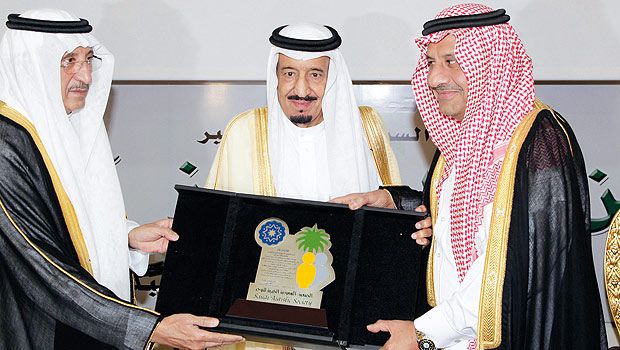
Riyadh, April 23: Defense Minister Prince Salman yesterday opened the Prince Nasser bin Abdulaziz Autism Center that belongs to the Saudi Charitable Society for Autism.
Prince Turki bin Nasser sent his thanks to Custodian of the Two Holy Mosques King Abdullah for his support for the center, which adheres to international standards.
Prince Turki said: “Prince Salman’s dedication to this center comes from his keenness in supporting social and charitable activities, especially those targeting the disabled. Members of the Saudi Charitable Society for Autism are very keen on seeking the best services for this section of society in the Kingdom.”
Zayd bin Abdullah Al-Mashari, adviser to Prince Nasser, explained the center was established in 1997 under the name Academy of Special Education. It then came under the supervision of the Saudi Charity for Autism, authorized officially by the Ministry of Social Affairs. Approval was granted by King Abdullah to name the center after Prince Nasser.
The late Crown Prince Sultan donated SR10 million, while the contribution of Prince Turki, chairman of the center, was the land on which the center stands. The area is 10,000 sq. meters and valued at SR25 million in addition to SR10 million worth of support from the Ministry of Social Affairs.
Al-Mishari added the center consists of six basic units all working for the benefit of people with autism, including one for the overall clinical diagnosis of autism, one for early intervention, one for the education of boys, an evening program unit and a unit for the vocational rehabilitation of boys.
The unit of vocational training for girls will be operational by the beginning of the next scholastic year, as will the unit of education and training that will hold lectures, seminars and workshops and facilitate participation in exhibitions and distribute publications.
Al-Mishari said that the center seeks to achieve other objectives including the protection of rights and equal opportunities and integrate those with autism into mainstream society.
It also aims to provide education, training and rehabilitation for children and adults with autism, provide activities aimed at the discovery and development of their potential to the highest possible extent, and raise public awareness of individuals with autism in the community to facilitate acceptance and improve their daily lives, especially with regard to social interaction with others.
The center will organize courses and workshops for teachers, specialists and parents involved in the education and training of children with autism, and to support research and studies that deal with people with autism by providing opportunities for researchers.
Al-Mishari said: “The conditions for access to the center include providing a medical report from a clinic that outlines the diagnosis of autism and similar disorders. The age of the child should be at least two years and not more than seven years for boys to join the unit of early intervention, and girls should not be more than 14 years.”
“Tuition fees at the center is SR15,000 annually, which is less than half the tuition fees in nongovernmental centers for people with special needs. For those unable to pay the fees, Saudi charities may be able to help.”





Comments
Add new comment